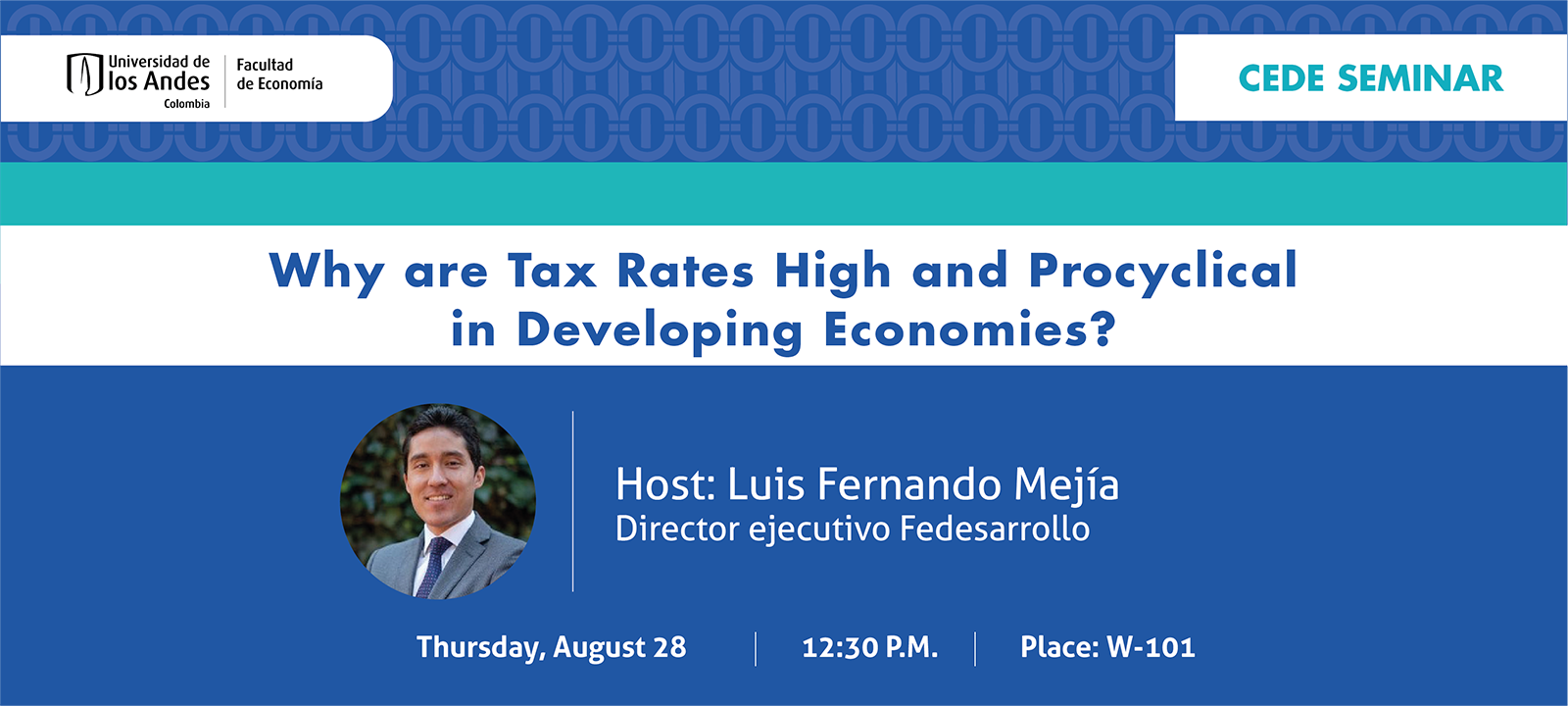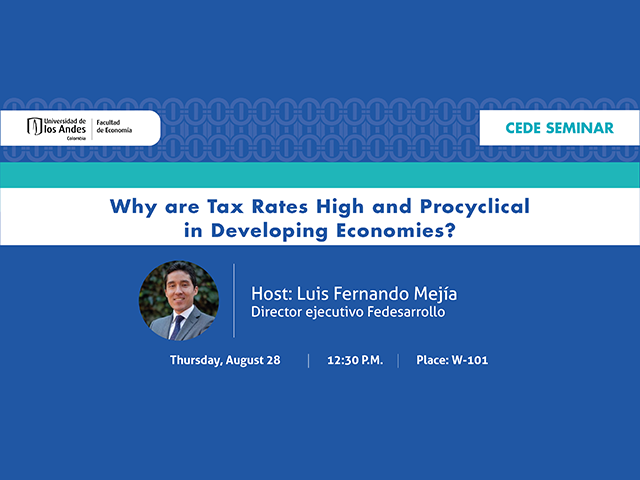CEDE Seminar - Luis Fernando Mejía

An analysis of corporate income tax reveals a largely overlooked fact: statutory tax rates are higher in developing economies. In addition, statutory tax rates are procyclical in low-income economies, rising during downturns and potentially amplifying recessions. This paper develops a theoretical framework that reconciles these two phenomena. In our model, firms choose between formal and informal operations based on their productivity and the benefits of formalization, while the government---constrained by limited tax collection efficiency---must set a statutory tax rate to finance a given level of expenditure. We show that low state capacity forces governments to adopt high statutory tax rates, which in turn raise the threshold for formalization and exacerbate informality. Moreover, during economic downturns, the contraction of the tax base compels these governments to raise statutory rates, rendering fiscal policy procyclical. We demonstrate that this procyclicality intensifies as state capacity decreases, creating a compounding challenge where the weakest states face the most destabilizing fiscal adjustments during economic downturns. We also show that even when firms in different countries have the same inherent productive capabilities, stronger state capacity leads to higher observed productivity. This creates an artificial productivity gap between developing and developed countries, driven by institutional constraints rather than actual differences in productive potential. A dynamic extension of our model reveals how political instability and high reform costs can trap countries in a low-capacity equilibrium. Our framework offers implications for policies aimed at modernizing tax administration, broadening the tax base, and implementing countercyclical fiscal measures in developing economies.

